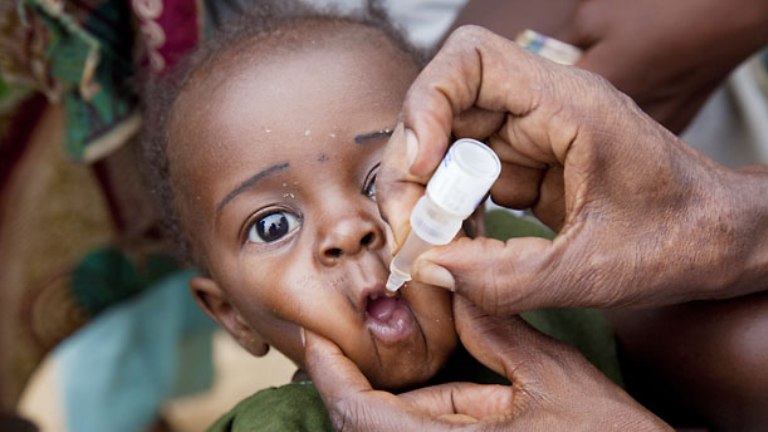By: Calvin Otieno
Send to a friend
The details you provide on this page will not be used to send unsolicited email, and will not be sold to a 3rd party. See privacy policy.
[NAIROBI] A follow-up of a phase II study for a malaria vaccine candidate has found that its efficacy declines over time.
The candidate, RTS,S, was initially hailed as a success, with experts predicting a 2015 release. But results since then have been mixed, with disappointing results from a phase III trial in infants last November.
In the new trial, researchers from the KEMRI-Wellcome Trust Research Programme, based in Kenya, and Oxford University, in the United Kingdom, assessed the safety and efficacy of RTS,S on the 447 children ― aged 5-17 months at the start of the follow-up study ― who had been part of an earlier phase II trial. In total, 320 of the children completed four years of follow-up.
They found that the vaccine's efficacy dropped from 43.6 per cent in the first year to zero by the fourth year.
The study also found out that it still provides up to around 50 per cent protection against malaria in young children over a 6-15 months follow up.
Ally Olotu, a senior research scientist at KEMRI and the study's principal investigator says that protection was lower in children who had more exposure to malaria than those who had low exposure. This could be because a high risk of infection overcomes the protection provided by the vaccine.
Olotu says that that a larger ongoing phase III trial will provide more definitive data on how the vaccine could be used.
"The results from phase III will be definitive. This is a larger study recruiting more than 16,000 children and measure of protection will therefore be more precise. Furthermore, it will report the effect of a booster vaccine dose, which the phase II trial did not use, given with the aim of sustaining the vaccine protection over time," said Oluto. The results are expected in 2014.
Elizabeth Juma, senior research officer and public health specialist at KEMRI, says that RTS,S is not the best candidate for a malaria vaccine, but that research is ongoing to find a more suitable alternative.
"We in Sub-Saharan Africa look towards having a vaccine that can protect those that bear the heaviest burden — young children."
According to the WHO, malaria caused an estimated 660,000 deaths in Africa in 2010, mostly among children.
The results of the study were published in the New England Journal of Medicine last month (21 March).
Link to study abstract in NEJM
This article has been produced by SciDev.Net's Sub-Saharan Africa news desk.
References
NEJM doi: 10.1056/NEJMoa1207564 (2013)


